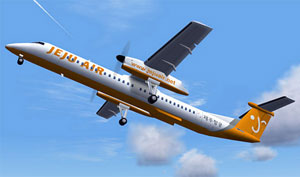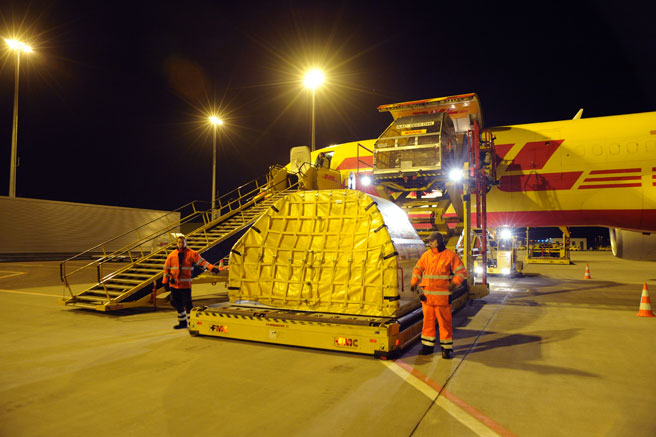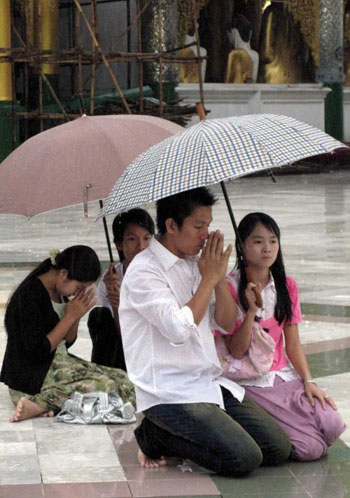China
Wire
 Fuel
will increase costs by more than 20 billion Yuan for Chinese domestic
airlines this year. Revenue will be down 2 billion Yuan, Shanghai
Daily reported. Meantime domestic China carriers have upped fuel
surcharge by as much as 50 percent to offset surging oil prices
. . . . Qatar Airways
opened an office this month in Chengdu,
the airline's fourth office on mainland China following Beijing,
Shanghai and Guangzhou
that opened this past March . . . . Hainan
Airlines added B737 services July 9 from Ningbo
to Dalian, Hailaer,
Qingdao and Zhangjiajie
. . . . Meantime fearing overcapacity,
China's National Development Reform Commission
(NDRC) says airlines in China need NDRC approval if they
wish to add aircraft. Clampdown will include close scrutiny of airlines
financial strength, manpower, pilot core etc. . . .
. JeJu (Join & Joy)
Air, Korea's
first budget carrier opens its first international route to Hiroshima,
Japan today July 11. www.jejuair.net Fuel
will increase costs by more than 20 billion Yuan for Chinese domestic
airlines this year. Revenue will be down 2 billion Yuan, Shanghai
Daily reported. Meantime domestic China carriers have upped fuel
surcharge by as much as 50 percent to offset surging oil prices
. . . . Qatar Airways
opened an office this month in Chengdu,
the airline's fourth office on mainland China following Beijing,
Shanghai and Guangzhou
that opened this past March . . . . Hainan
Airlines added B737 services July 9 from Ningbo
to Dalian, Hailaer,
Qingdao and Zhangjiajie
. . . . Meantime fearing overcapacity,
China's National Development Reform Commission
(NDRC) says airlines in China need NDRC approval if they
wish to add aircraft. Clampdown will include close scrutiny of airlines
financial strength, manpower, pilot core etc. . . .
. JeJu (Join & Joy)
Air, Korea's
first budget carrier opens its first international route to Hiroshima,
Japan today July 11. www.jejuair.net
DHL's
Big Lift To Myanmar

 The
United Nations said 2.4 million people were still critically short
of aid after the storm tore through the Southern Myanmar, and
relief agencies warned that the most vulnerable survivors are
in critical need of help. The
United Nations said 2.4 million people were still critically short
of aid after the storm tore through the Southern Myanmar, and
relief agencies warned that the most vulnerable survivors are
in critical need of help.
Contribute To United Nations Myanmar Relief:
www.unfoundation.org
“Air Cargo Days,”
held at Leipzig Halle Airport, home of DHL last month , the world
continued recalling a theme struck at the Berlin Air Show also
held last month, remembering The Big Lift in Germany that began
in June sixty years ago and continued from air bases in the west
to a besieged 1948 Berlin City.
But now comes word that DHL, the
Deutsche Post subsidiary has since mid-May been continually delivering
innovative wings of mercy in Yangon (Rangoon) with a disaster
response team (DRT), specially trained and equipped to help in
the catastrophe that befell Myanmar.
Yangon is the commercial capital
of Myanmar, formerly Burma that continues to suffer grievously
from Cyclone Nagris.
Convoys of trucks laden with relief
supplies need about 20 minutes to bring the aid arriving at Yangon
Airport to a big inland warehouse managed by DHL.
Since mid-May, a team of four DHL
specialists have been on the spot to co-ordinate the disaster
management logistics process in the south-east Asian country.
This work is accomplished with the
support of local laborers and donated equipment under an agreement
with the UN.
But the situation here is grim.
"Comparing Myanmar with previous
missions like the earthquakes in Pakistan and Peru or the Tsunami
in Sri Lanka, this has been the hardest job so far," says
coordinator Chris Weeks in a telephone call with Air Cargo News
FlyingTypers.
"The lack of infrastructure
is one of the obstacles and does not really support the job of
our people there," adds Susanne Meier, the manager responsible
for organizing Deutsche Post World Net's work alongside the UN.
“The processes are very difficult
to plan because there is hardly any communication network,”
she added.
"In case we need urgent information
or want to pass it on to others, we have to jump into the car
and talk to the people face to face," is how DHL's Weeks
describes the daily practice.
"There's no way we can just
pick up the cell phone and ring somebody up."
As a result, DHL does not know in
advance how many freighters with aid supplies on board are landing
in Yangon and what kind of goods they exactly have on board.
Presently, an average of between
three and five flights a day arrive in Myanmar's capital.
They carry practically everything
into the country: food, beverages, blankets, tents, equipment
for moving collapsed huts and or medical supplies.
Urgently needed aid since thousands
of people are still sticking it out in the Myanmar Delta areas
worst affected by the floods.
After days of hesitation by the
military government, the aid is slowly getting on its way.
DHL and its DRT team were able to
get to work here relatively quickly because of the global partnership
with the United Nations Office for Coordination of the Humanitarian
Affairs (OCHA) signed in 2005.
In
the aftermath of natural disasters like earthquakes, floods or
volcanic eruptions, nearby airports face the sudden challenge
of handling the enormous amount of unplanned incoming aid relief.
DHL Disaster Response Teams were
built to coordinate the logistics on the very spot.
Therefore, three operation centers
worldwide have been set up: in Singapore, Florida and Dubai.
In case of a catastrophe a team
of volunteers will be sent with a UN mandate into the areas of
the emergency to coordinate logistics at the airports and accelerate
the flow of incoming goods to the affected areas.
At Yangon airport however, there
was no warehouse space available to store, sort and hand over
the shipments to the non-governmental aid organizations like the
Red Cross and others.
So the UN was temporarily handed
over a 3.000 square meter warehouse of a private rice exporter
for storing and sorting the incoming goods.
For transporting relief items onward
to the Delta region, around thirty trucks are available, each
able to load a maximum of twelve tons.
However a huge problem is the fuel
shortage and the skyrocketing high costs of diesel.
Recently French oil company Total
rushed in and guaranteed a large donation of fuel for keeping
the supply chain going from the warehouse to the devastated Delta
areas.
Besides the lack of communication
infrastructure, the political obstacles piled up by the military
government and the fuel shortage a further 'peculiarity' of Myanmar
is the absence of any press people that normally document such
aid activities.
DHL's mandate in Myanmar under the
UN aegis is to run for another three weeks, tasking DHL staff
among other things to teach local personnel the basics of air
freight and warehousing.
"When we leave here, we will
have trained the people on the spot so that they can organize
incoming aid supplies smoothly without our direct assistance,"
Chris Weeks said in a voice filled with hope.
Hope is something to keep alive
when talking about Myanmar these days.
Heiner Siegmund
|
|



